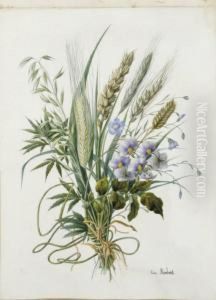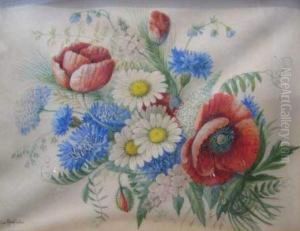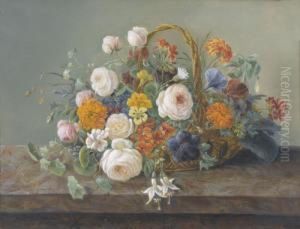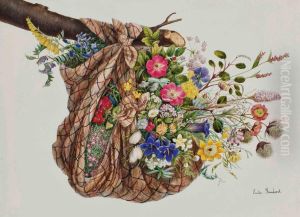Anna Emilia Reinhart Paintings
Anna Emilia Reinhart, also known as Anna Emilia Reinhart-Wäber, was a Swiss painter born on February 24, 1732, in Winterthur, Switzerland. Not as widely known as some of her contemporaries, Reinhart's work contributes to the understanding of female artists' roles during the 18th century. She was primarily recognized for her portrait paintings, which displayed a particular sensitivity to detail and character. Her style was influenced by the Rococo movement, which was prevalent during her time, characterized by ornate and decorative elements.
Reinhart's artistic journey began under the guidance of her father, Johann Rudolf Wäber, who was a painter himself. This early exposure to art within the family environment provided her with fundamental skills and an appreciation for the artistic vocation. Women artists in the 18th century often faced significant obstacles due to societal norms that limited their opportunities for formal training and professional recognition. Despite these challenges, Reinhart managed to gain some attention for her work.
In 1757, she married Johann Caspar Füssli, a painter who was the brother of the more famous artist, Henry Fuseli. Her marriage to Füssli connected her to a wider artistic circle and may have provided additional opportunities for her to develop her craft. Unfortunately, there is limited documentation regarding her career progression, and much of her artwork has not been preserved or is attributed to others due to the common practice of the time where women's work was often overshadowed by their male counterparts.
Reinhart's life and career were relatively short; she passed away on May 17, 1791, in Zürich. Despite the scarcity of her surviving works, Anna Emilia Reinhart is recognized by art historians as a figure who represents the underappreciated and often overlooked contributions of women in the arts during the 18th century. Her work remains a subject of interest for those studying the role and recognition of female artists throughout history.



